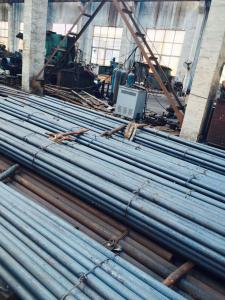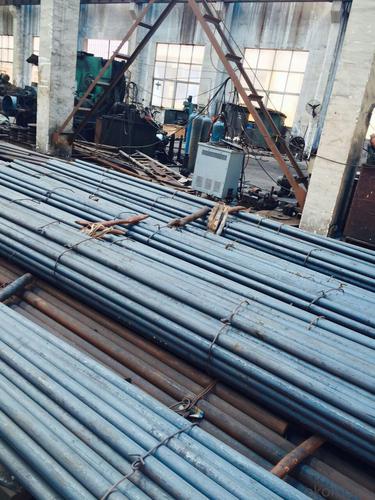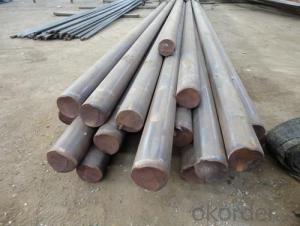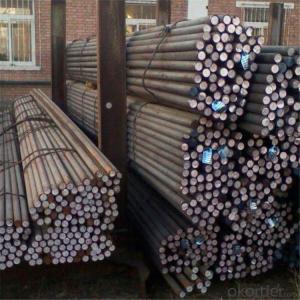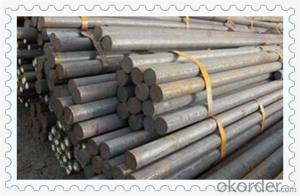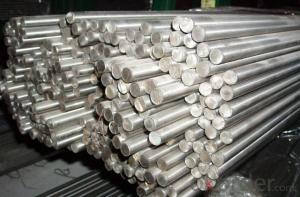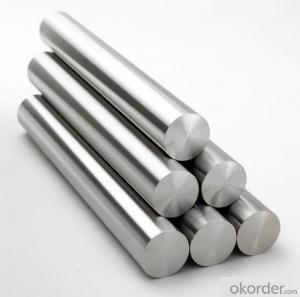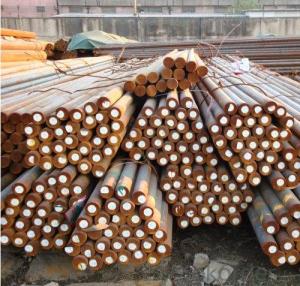1045 Cold Drawn Steel Round Bar
- Loading Port:
- Tianjin
- Payment Terms:
- TT OR LC
- Min Order Qty:
- 25 m.t.
- Supply Capability:
- 50000 m.t./month
OKorder Service Pledge
OKorder Financial Service
You Might Also Like
Specification
1045 Cold Drawn Steel Round Bar
Product Details:
1.Standards: AISI:1045/ASTM:1045/JIS:S45C/DIN:1.0503/GB45/En8/CK45/XC45/C45
2.Round sizes: Dia 80-500mm Length 2500-5800mm or as your request.
3.Factory condition:Annealed to HBS<220;hot rolled,black.
4.Test:Ultrasonic test according to SEP 1921
5.Packing situation: standard seaworthy packing or as customer required
6.Delivery time: 20 days after order confirmed
7.Payment: T/T or L/C at sight.
Chemical composition:
C | Si | Cr | Mn | Ni | P | S | Cu |
0.42-0.55 | 0.17-0.35 | ≤0.022 | 0.50-0.75 | ≤0.012 | ≤0.018 | ≤0.01 | ≤0.017 |
Application:
Plain carbon steel for mechanical engineering and automotive components.
It is usually supplied untreated but can be supplied to order in the normalized or finally heat treated (quenched and tempered to "Q" or "R" properties), which is adequate for a wide range of applications.
It is a very popular grade of through-hardening medium carbon steel, which is readily machinable in any condition. It is suitable for the manufacture of parts such as general-purpose axles and shafts, gears, bolts and studs. It can be further surface-hardened typically to 50-55 HRC by induction processes, producing components with enhanced wear resistance.
In its heat treated forms possesses good homogenous metallurgical structures, giving consistent machining properties.
Product Show:
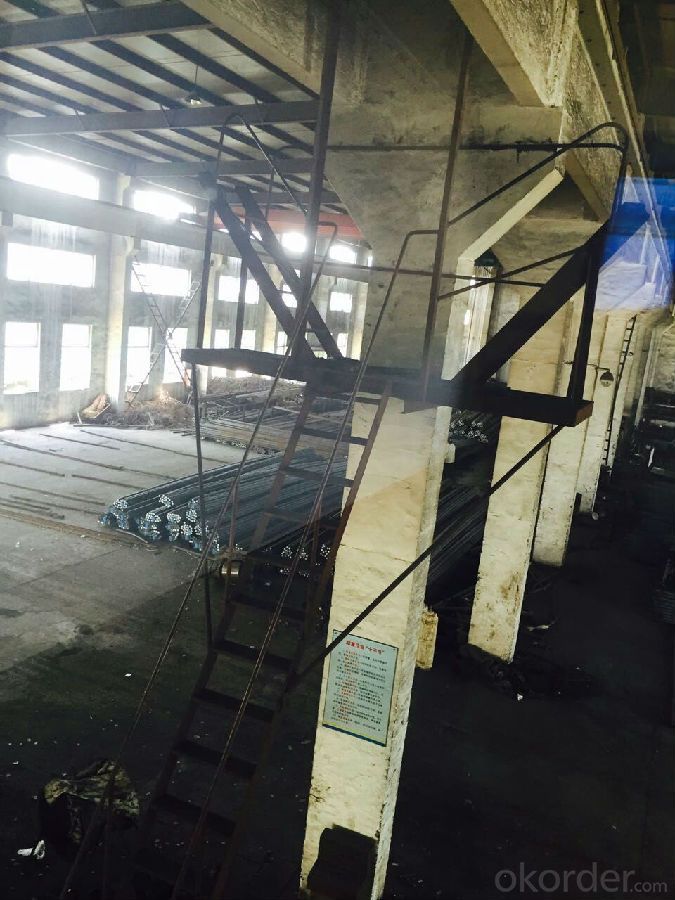
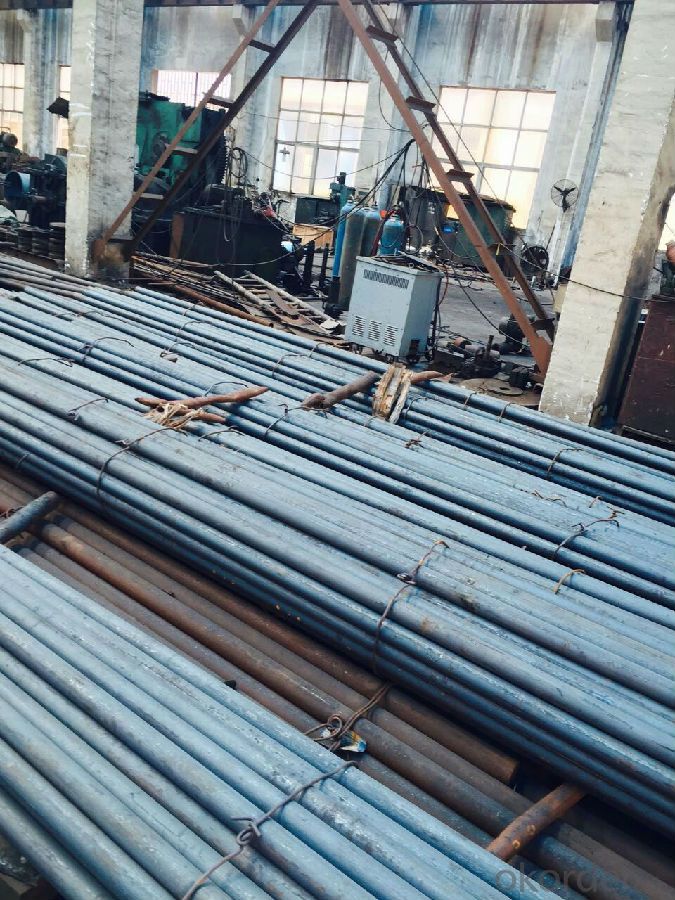
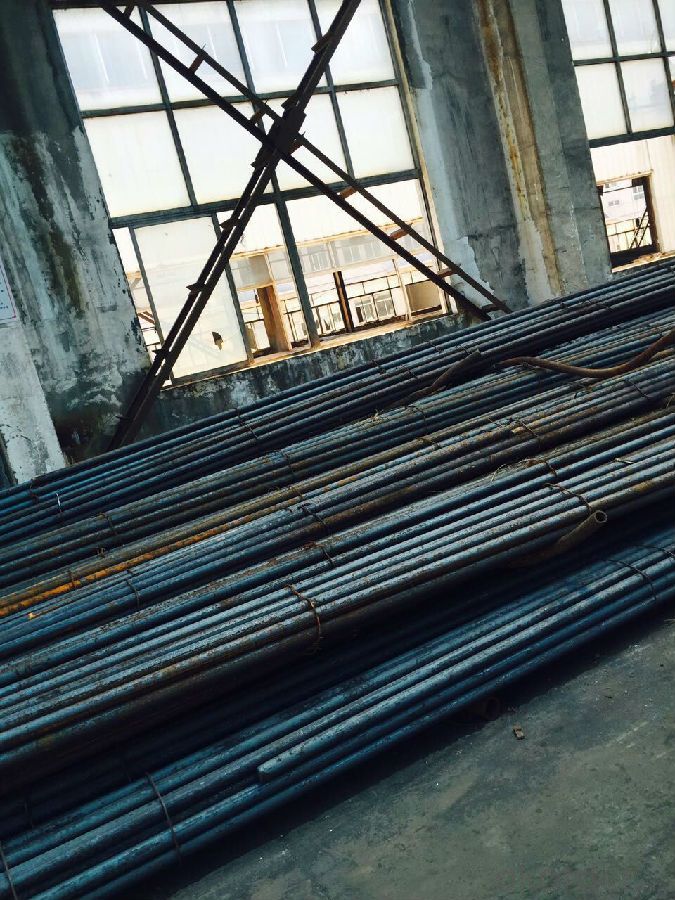
- Q: How is shock-resistant alloy steel used in the production of impact-resistant parts?
- Shock-resistant alloy steel is used in the production of impact-resistant parts due to its high strength and ability to withstand sudden impact forces without fracturing or deforming. This steel is specifically designed to absorb and disperse energy, making it ideal for applications where parts are exposed to repeated impacts or high-stress environments. By using shock-resistant alloy steel, manufacturers can create durable and reliable impact-resistant parts that can withstand heavy loads, reduce the risk of failure, and increase the overall safety and longevity of the component or equipment.
- Q: How does special steel contribute to reducing product downtime?
- Special steel contributes to reducing product downtime by offering enhanced durability and resistance to wear, corrosion, and high temperatures. Its unique properties enable components made from special steel to withstand harsh operating conditions and maintain their integrity over extended periods. By using special steel in critical parts, manufacturers can minimize the frequency of component failures, repairs, and replacements, thereby reducing product downtime and increasing overall productivity.
- Q: What are the different applications of special steel in the construction industry?
- Special steel has various applications in the construction industry, including the production of structural elements like beams and columns, reinforcing bars, and fasteners. It is also used in the manufacturing of high-strength and corrosion-resistant components for bridges, high-rise buildings, and infrastructure projects. Additionally, special steel finds application in the construction of offshore platforms, pipelines, and other critical structures that require exceptional durability and performance.
- Q: What are the different electrical grades of special steel?
- There exist various specialized types of steel that possess exceptional electrical properties. These types include: 1. Silicon Electrical Steel: This particular grade of steel contains a significant silicon content, typically ranging from 3% to 4%. The inclusion of silicon aids in minimizing eddy current losses and enhancing the steel's magnetic properties. Consequently, it becomes an ideal choice for utilization in electrical motors and transformers. 2. Stainless Electrical Steel: This specialized steel grade is crafted from stainless steel alloys, renowned for their remarkable resistance to corrosion. Additionally, stainless electrical steel exhibits low electrical resistivity and high thermal conductivity, making it well-suited for electrical connectors, terminals, and other components that necessitate excellent electrical conductivity and resistance to oxidation. 3. Tool Steel for Electrical Purposes: Tool steels are commonly employed in the production of various tools and dies. Certain tool steels are specifically engineered to possess enhanced electrical properties, including heightened electrical conductivity and resistance to heat. These grades are frequently utilized in the fabrication of electrical contacts, switches, and other electrical components that require exceptional resistance to wear and superior electrical performance. 4. Copper-Clad Steel for Electrical Applications: This specialized steel grade is created by bonding a layer of copper to a steel core. The copper layer offers outstanding electrical conductivity, while the steel core provides durability and strength. Electrical copper-clad steel is commonly employed in applications where high electrical conductivity is imperative, such as power transmission lines and grounding systems. In conclusion, the diverse electrical grades of specialized steel offer a variety of electrical properties to meet the specific requirements of various electrical applications. These grades are meticulously engineered to deliver optimal electrical performance, durability, and resistance to corrosion and wear.
- Q: What are the challenges in forming special steel?
- One challenge in forming special steel is achieving the desired mechanical properties while maintaining the desired shape and dimensions. Special steels often require precise and complex processing techniques, including heat treatment, forging, and machining, which can be challenging to execute accurately. Additionally, special steels may have specific chemical compositions that make them more susceptible to cracking, warping, or distortion during the forming process, further adding to the challenges involved. Controlling these factors and ensuring the final product meets the required specifications requires a high level of expertise and careful attention to detail.
- Q: What are the different corrosion protection methods used for special steel?
- There are several corrosion protection methods used for special steel, including coating with anti-corrosive paints or sealants, galvanizing with zinc or other metals, applying sacrificial anodes, using corrosion inhibitors, and employing cathodic protection techniques such as impressed current or sacrificial anode systems.
- Q: What are the applications of special steel in aerospace engineering?
- Special steel is widely used in aerospace engineering for various applications. It is used to manufacture critical components such as turbine blades, landing gear, and structural parts that require high strength, toughness, and resistance to extreme temperatures. Special steel alloys, such as stainless steel and nickel-based alloys, are used due to their excellent corrosion resistance, heat resistance, and ability to withstand harsh environments. These materials ensure the safety and reliability of aircraft, enabling them to operate under demanding conditions and meet stringent performance requirements.
- Q: What are the properties of mold steel?
- Mold steel is known for its exceptional hardness, wear resistance, and toughness. It possesses high heat resistance and can withstand extreme temperatures, making it suitable for use in industrial applications where molds are subjected to repetitive heating and cooling cycles. Mold steel also exhibits good dimensional stability, allowing for the precise replication of complex shapes and intricate details. Additionally, it has excellent machinability and polishability, ensuring smooth surface finishes on the molded products. Overall, the properties of mold steel make it an ideal material choice for manufacturing high-quality molds used in various industries such as automotive, aerospace, and consumer goods.
- Q: Can special steel be used for structural applications?
- Yes, special steel can be used for structural applications. Special steels, such as high-strength and corrosion-resistant alloys, are often used in various structural applications where exceptional strength, durability, and reliability are required. These steels offer superior properties compared to regular carbon steels, making them suitable for demanding structural projects in industries like construction, automotive, aerospace, and offshore.
- Q: How does special steel contribute to reducing product waste during manufacturing?
- Special steel contributes to reducing product waste during manufacturing by offering superior strength, durability, and corrosion resistance. Its unique properties allow manufacturers to produce components that are longer-lasting and more resistant to wear and tear. This reduces the need for frequent replacements or repairs, ultimately minimizing product waste and increasing overall efficiency in the manufacturing process.
Send your message to us
1045 Cold Drawn Steel Round Bar
- Loading Port:
- Tianjin
- Payment Terms:
- TT OR LC
- Min Order Qty:
- 25 m.t.
- Supply Capability:
- 50000 m.t./month
OKorder Service Pledge
OKorder Financial Service
Similar products
Hot products
Hot Searches
Related keywords
